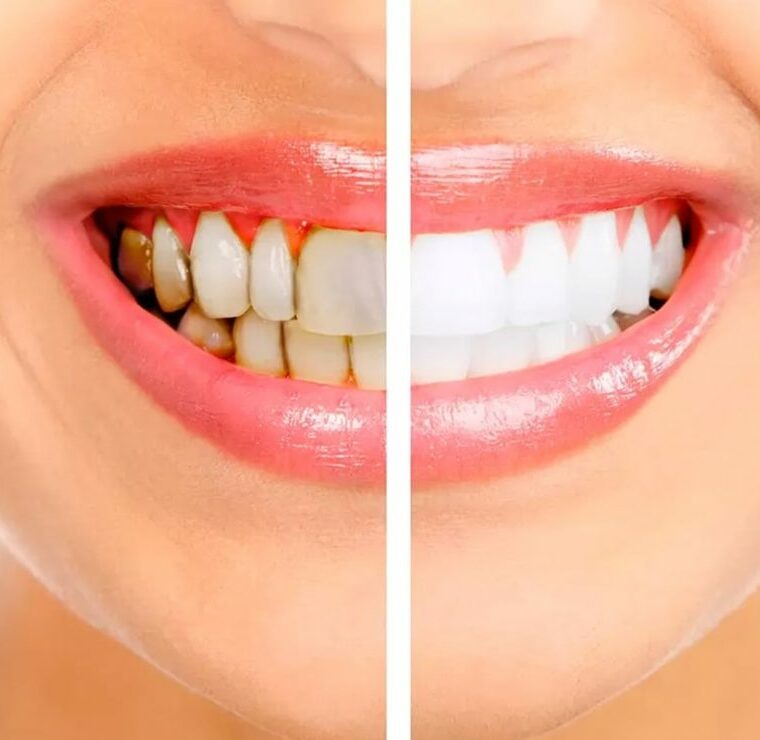Dental tartar, also known as dental calculus, is a mineralized layer that forms when bacterial plaque accumulates due to inadequate removal of food residues, interacts with saliva, and hardens. While tartar primarily builds up on the tooth surfaces, it can also extend beneath the gums in advanced cases, accumulating below the gum line. Regular dental check-ups are essential to monitor tartar formation, and removal by a dental professional, known as tartar cleaning or scaling, is necessary when detected.
If tartar is not properly removed, it can lead to gum problems such as gingival recession and gingivitis. Beyond oral health issues, tartar also negatively impacts the aesthetic appearance due to its unsightly look.
Why Do Dental Stones Form?
The primary cause of dental calculus formation is poor oral hygiene. To prevent tartar buildup, teeth must be brushed regularly, mouthwashes used to reduce plaque, and dental floss employed to clear food debris from between teeth.
Additional factors contributing to tartar formation include:
- Smoking and alcohol consumption,
- Antibiotic use,
- Certain systemic diseases,
- Poor nutrition,
- Diets high in carbohydrates and sugars,
- The composition and quality of saliva.
How Can Tartar Formation Be Prevented?
Preventing dental calculus requires consistent oral care aimed at reducing bacterial plaque. This includes brushing teeth at least twice daily with appropriate toothbrushes and toothpaste, and regularly using dental floss and mouthwash. Biannual dental examinations help monitor and manage any tartar buildup.
How Is Tartar Removed?
Tartar is removed using ultrasonic instruments that break up and clean the deposits. Following removal, tooth surfaces are polished and smoothed to inhibit future plaque accumulation.
What Are the Harms of Dental Stones?
- Untreated tartar can lead to severe gum diseases.
- It causes bad breath.
- It increases the risk of tooth decay.
- It triggers gingivitis.
- By causing gum recession, tartar exposes tooth roots, leading to tooth sensitivity.
- It contributes to jawbone loss, which can result in even healthy teeth falling out.
